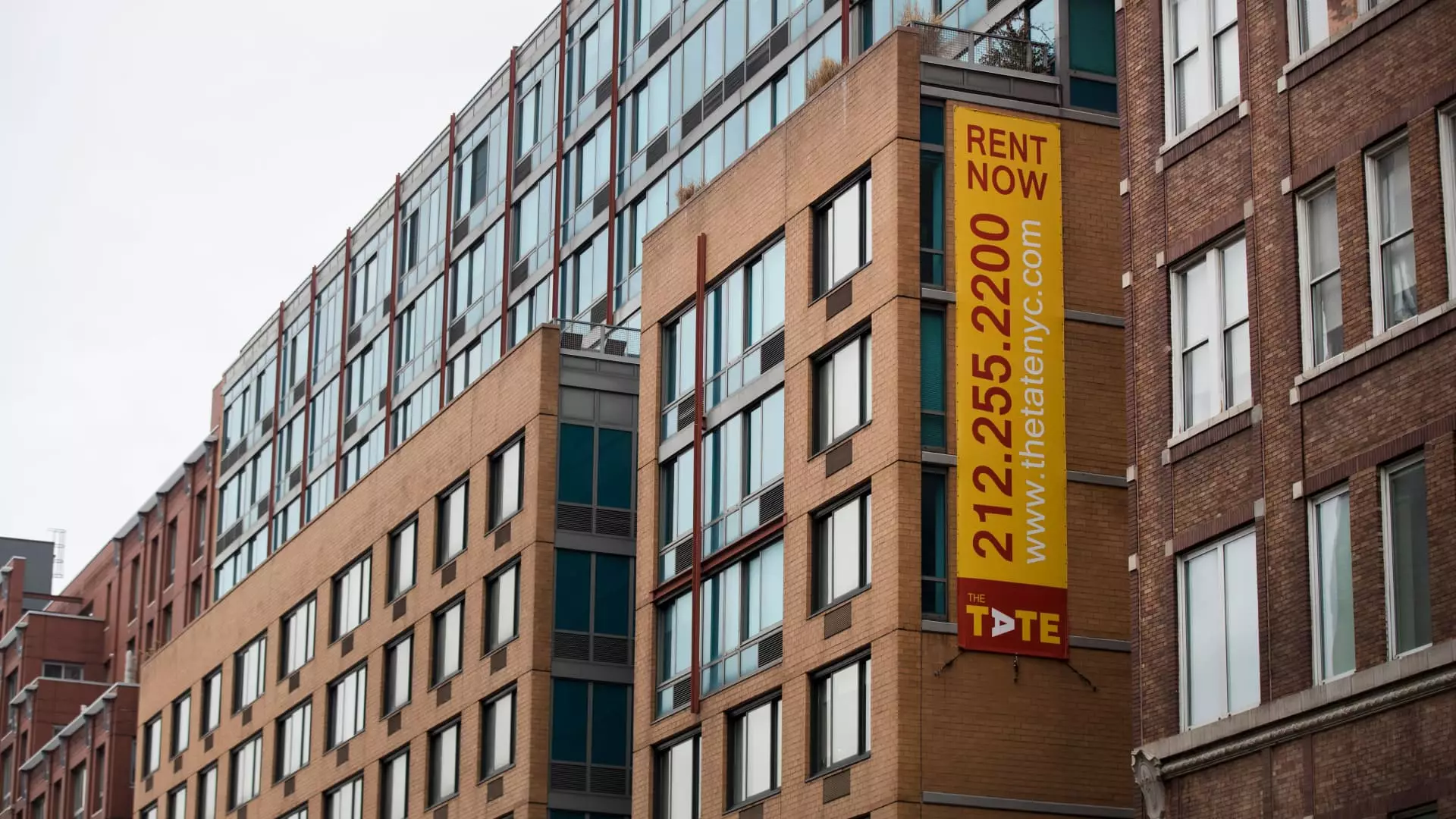In a time when mobility has often been celebrated as a hallmark of modern life, the current state of the rental market presents a paradox. The notion has always been that renting should offer advantages—affordability, flexibility, and low upkeep. However, recent data reveals a disturbing trend: fewer people are moving out. Real estate analyst Alex Goldfarb’s observation that turnover rates among apartment renters in major cities have plummeted to around 30% is not just surprising; it’s alarming. This stagnation signals more than just a minor blip in housing behavior; it highlights deeper economic anxieties and a significant shift in lifestyle priorities.
Economic Anxiety and Its Impact
The trepidation surrounding economic uncertainty has driven a wedge between renters and the traditional mindset of seeking upward mobility—such as homeownership or relocating for better opportunities. This ongoing fear stems from inflated prices in the housing market, lack of available rentals, and an overall unease regarding job security. An alarming aspect of this situation is that it limits the entrepreneurial spirit that drives innovation and creativity. More than ever, workers are tethered to their current locations due to a fragile economy and exorbitant moving costs. Instead of pursuing new career opportunities or embarking on adventurous paths, individuals remain glued to familiar surroundings, stifling personal growth.
Landlords Are Reaping Rewards
While renters are facing challenges, landlords are significantly reaping the rewards from this stagnant scenario. The lack of mobility has bolstered their negotiation power, allowing them to renew leases at elevated rents with minimal turnover costs. Properties that once seemed merely a means to an end have transformed into cash cows, as renters are reluctantly tethered due to the lack of viable alternatives. The financial dynamics have shifted in favor of landlords, evidenced by increased rental prices and a decrease in vacancy rates—for them, stagnation has become a lucrative game.
The Uncertain Future of Multifamily Housing
Amid this turbulence, multifamily real estate investment trusts (REITs) exhibit intriguing resilience. Companies like Essex Property Trust and Equity Residential, with their foothold on the West Coast, are witness to shifts spurred by tech giants like Amazon calling employees back to urban offices. However, the future is anything but certain, particularly concerning the Sunbelt regions, which had once thrived during the pandemic. As economic fears loom larger, the potential fallout from this stagnation could be dire—should a recession strike, companies such as Camden Property Trust may not just lose their current tenants but could also witness a mass exodus of clients.
A Turning Point in Demand
The latest figures do show a slight uptick in rental prices, owing to a remarkable surge in demand that outstrips the pace of new construction completions. Yet, let’s not be overly optimistic. The housing market has become a cautionary tale of demand outpacing supply, where a 0.9% year-over-year increase in rents does not necessarily indicate a thriving sector; rather, it reveals a precarious balancing act. The net absorption rate suggests that renters are clinging to their homes in decreasing vacancies, hinting at a broader crisis brewing under the surface. The stark fact remains that while the situation may appear stable, the currents of the multifamily housing landscape are anything but calm.
The housing market is, in a sense, a reflection of a society grappling with uncertainty, caught between the desire for permanence and the inevitability of change. Yet, with a stagnation that favors landlords, it’s crucial for policy makers and economic experts to re-evaluate the implications of this new rental reality before it entraps us all in a cycle of fear and complacency.

